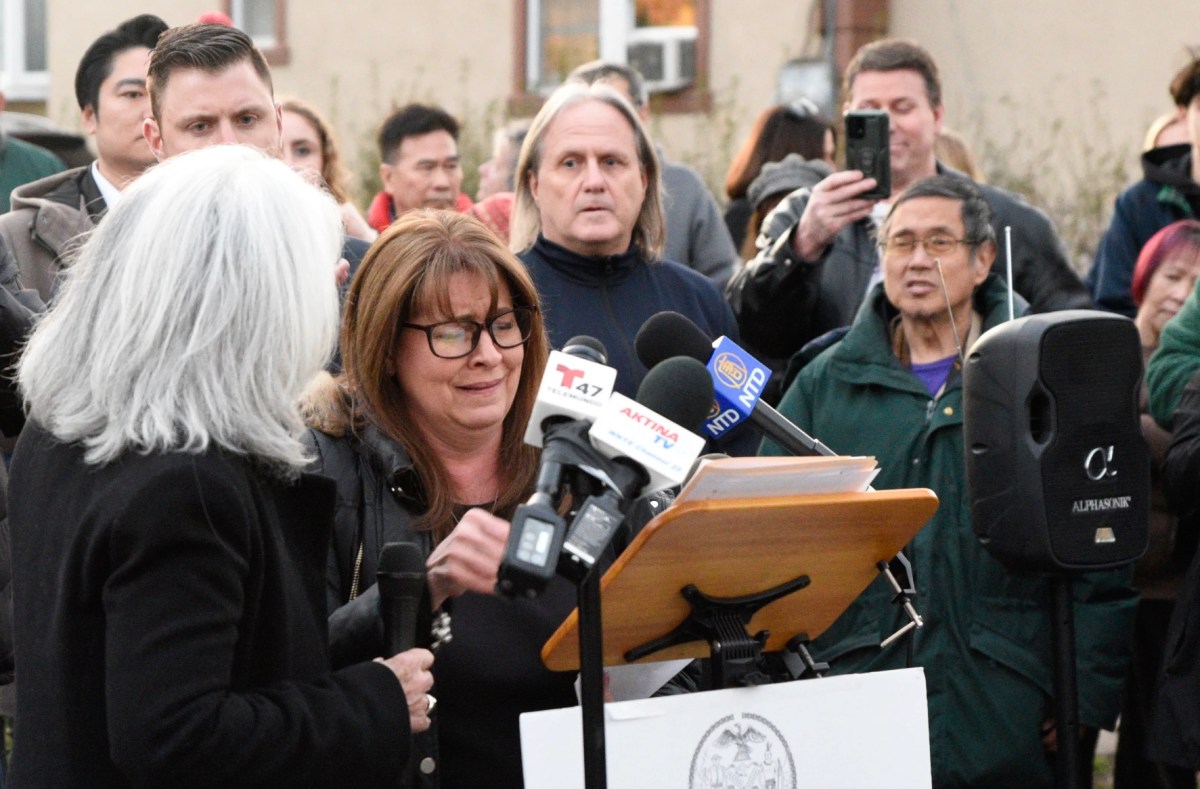OTTAWA – As thousands of Canadians marked the native Day of Action with peaceful rallies Thursday, 13-year-old Shannen Koostachin gazed around an ornate parliamentary office.
“I wish my class looked like this,” she told Indian Affairs Minister Chuck Strahl as they met to discuss a long-awaited new elementary school for the Attawapiskat First Nation in northern Ontario.
“You could tell he was nervous,” she later said.
Koostachin and several other students who’d travelled from the remote James Bay Coast left empty-handed and without even a timeline for when they might anticipate a permanent building.
About 400 kids have been taught in eight aging portables since their school was closed in 2000 because of a massive diesel leak in the heating system.
Strahl says the situation isn’t “ideal” but it doesn’t constitute a health and safety crisis.
Cries of “Shame!” rang out from a placard-waving crowd of about 1,000 people on Parliament Hill as Koostachin recounted her meeting, showing poise beyond her years.
“Today, I feel down because Minister Chuck Strahl said he didn’t have the money to build our new school. I didn’t believe it. It’s not right.”
Native leaders say Thursday’s events were the first of a sustained protest campaign that will extend into the summer and for months, possibly years, to come.
Strahl later told reporters that Attawapiskat is one of many costly projects that must be tackled in order of priority.
NDP MP Charlie Angus, who has led a YouTube letter-writing drive to push for the new school, accuses the Conservatives of raiding education infrastructure funds to pay for clean water projects and other needs.
“I’m frankly surprised the minister’s taking this attitude toward education. Because if there’s one thing that we can put money into, it has to be the education of children. I can’t see how there can be any other priority.”
Dropout rates on Attawapiskat start in Grade 5, he said.
That political duel was about as acrimonious as it got as thousands of people across Canada hit the streets to mark the second annual day to sharpen focus on aboriginal poverty.
Rallies were calm despite concerns of confrontations in Caledonia, Ont., where a land dispute erupted more than two years ago, and further east in Deseronto, where protests during last year’s event shut down Highway 401.
The Assembly of First Nations had urged participants to obey the law and focus attention on child poverty.
“It has never been about blockades,” said national chief Phil Fontaine as a relatively thin crowd of several hundred people with flags and signs gathered in perfect spring weather before marching to Parliament Hill.
“It has never been about shutting down the 401 or shutting down train service. It’s really an attempt on our part to reach out to Canadians, to invite Canadians to join with us on this very special day for our people.”
An afternoon rally of speeches and music was expected to draw about 2,000 participants but topped out at around 1,000, according to police estimates.
“I think people are still a bit cautious,” Fontaine said. “They’re not sure what we’re all about.”
Placards and banners asked: “Where is the Justice?” and demanded: “Make First Nations Poverty History Now.”
In Vancouver, about 150 people gathered in front of the countdown clock for the 2010 Winter Games.
“We look on the extravagance of what the Olympics represent to us as indigenous people and quite frankly, we’re pissed off,” said David Dennis, the vice president of the United Native Nations.
“So today … we are standing united in telling the Olympics if they want a peaceful Games they have got to come and pay attention to the poverty that is in our communities.”
In Toronto, tents dotted the lawn outside the Ontario legislature where aboriginal demonstrators have camped for four days.
They are demanding prior consent before mining or other development is allowed on disputed land. Seven native leaders have been jailed in recent months for blocking mineral exploration on traditional territory.
Frankie Cote, 31, of the Kitigan Zibi Anishinabeg nation about 130 km north of Ottawa, says real change will take more than polite demonstrations.
“In my opinion it’s going to take the plight of aboriginal peoples to get a hell of a lot worse before it’s going to get better,” he said.
“Look what happened in Oka in 1990. The Mohawk people had to stand up and fight for their rights and actually cause chaos for . . . the Oka area. And we got international recognition – whether that be bad publicity, good publicity. It doesn’t matter: it was brought to the forefront.”
Cote says he agrees “100 per cent” with Shawn Brant, the Mohawk protester who led road and rail blockades last year at Deseronto, near Kingston, Ont.
Brant says native leaders must be willing to take drastic stands – and risk landing behind bars – to cause the sort of disruption that forces governments to pay attention.
Brant is in jail facing several charges, including assault with a weapon. His supporters say they are trumped-up accusations made last month as the day of action approached.
Cote says he’s willing to make a similar sacrifice.
“If that’s what it takes, yes, I’d be willing to go to jail for my children. I don’t want my children to have to go through what I did as a kid, with the racism and stuff that I had to face.”
Last June 21 his community’s culture centre was vandalized with swastikas and white supremacist graffiti on National Aboriginal Day.
“It’s too bad,” Cote says. “I wish we had more actual national aboriginal leaders that would take the stance that Shawn Brant has – rather than basically: ‘Oh, we’ve got to do this and that because (otherwise) . . . we’re going to get our funding cut.”‘
Rallies were also held at the British Columbia legislature, Prince Albert, Sask., the Yukon, Northwest Territories and other locations across the country.
In Halifax, a small group of students decorated a statue of Edward Cornwallis, founder of the city, with protest signs. Some demonstrators said he was no hero, but rather a man who gave orders to kill Nova Scotia’s Mi’kmaq and seize their land.
“It’s about letting them know how First Nations feel,” said Ashley Julian, 22, a Mi’kmaq from Indian Brook First Nation near Truro, N.S.
















